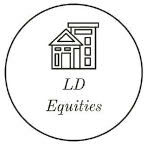Squatters
What Are Squatter’s Rights in New York?
Squatting is when a person finds an abandoned or vacant property and moves in without discussing it with the property owner. It sounds like breaking and entering – except sometimes it is legal.
Who is Considered a Squatter in New York?
A squatter is someone who is occupying a foreclosed, abandoned, or unoccupied building (usually residential) or area of land without the lawful permission of the owner. This means that the person does not rent or own the property. Despite this, squatting in the United States is more common than you’d think.

Isn’t that Trespassing?
- In New York, a squatter who has been residing on a property for 30 days is automatically upgraded to a legal tenant. Landowners must work quickly to remove squatters before these 30 days are up.
- Squatters or trespassers may falsely claim a right to be on the property. They can do this by presenting false documents or invalid deeds to law enforcement or property owners. This is always illegal.
- Squatters do have rights, but if they do not fulfill the requirements for adverse possession they can be arrested as criminal trespassers.
- Squatters can be complete strangers or even neighbors who want to obtain title of the land.
- If there is a legitimate emergency, a person who accessed the property without authorization may be exempt from trespassing.
- The property must not be in use for squatters to begin the process of an adverse possession claim.
What about Holdover Tenants?
Holdover tenants or tenants at sufferance are tenants who stay on a property after their lease has ended. In this situation, the tenant is responsible for paying rent at the existing rate and terms. If the landlord chooses to accept this, they can do so without admitting the legality of the occupancy.
If the landlord does choose to continue accepting rent, the tenant becomes a tenant at will — meaning that the tenant is on the property “at the landlord’s will” and can be evicted at any time without notice.
If the landlord instead issues a notice to quit the tenant can be subject to a lawsuit for unlawful detainer. A holdover tenant will not be able to make an adverse possession claim if they have already been told to leave. They will be considered a criminal trespasser at this point.
Understanding Adverse Possession in New York
A squatter can claim rights to the property after a certain time of residing there. In New York, it takes 10 years of continuous occupation for a squatter to make an adverse possession claim (NPA § 501, et seq). When a squatter claims adverse possession, they can gain legal ownership of the property. At this point, they are no longer criminal trespassers and they have legal permission to remain on the property.
In the U.S., there are five distinct legal requirements that must be met by the squatter before they can make an adverse possession claim. The occupation must be:
- Hostile – without permission and against the right of the true owner.
- Actual – exercising control over the real property.
- Open & Notorious – using the property as the owner would and not hiding his/her occupancy.
- Exclusive – in the possession of the individual occupying the real property alone.
- Continuous – staying on the property for 10 years
If these five elements are not met, the squatter does not have grounds for adverse possession.
How to Get Rid of Squatters in New York
Tips for Protecting Yourself from Squatters in New York
- Inspect the property regularly.
- Secure the property (make sure all entrances are blocked, doors and windows are locked, etc.).
- Pay property taxes in a timely manner.
- Serve written notice as soon as you realize squatters are present.
- Offer to rent the property to squatters.
- Call the sheriff (not the local police) to help remove squatters from the premises if they do not leave.
- Hire a lawyer – you may need to proceed with a lawsuit to remove the squatters and having the right legal counsel can help.
- Put up “No Trespassing” signs on the property, especially if it is unoccupied.

More Information
For more information on how we can help simplify the process, contact us.
